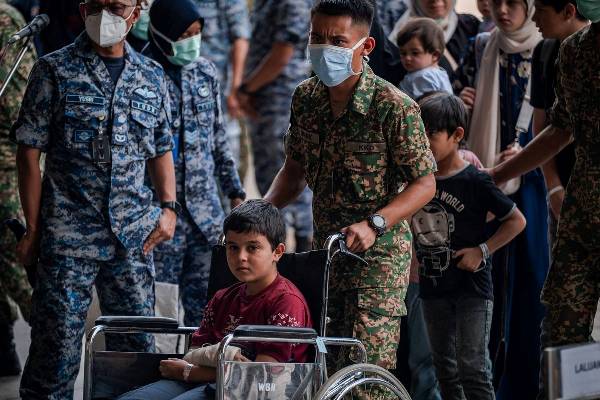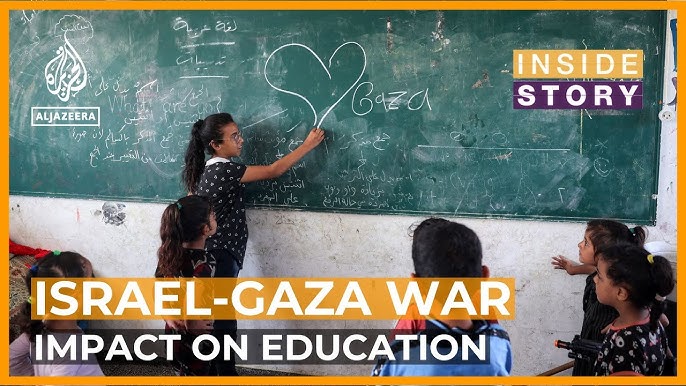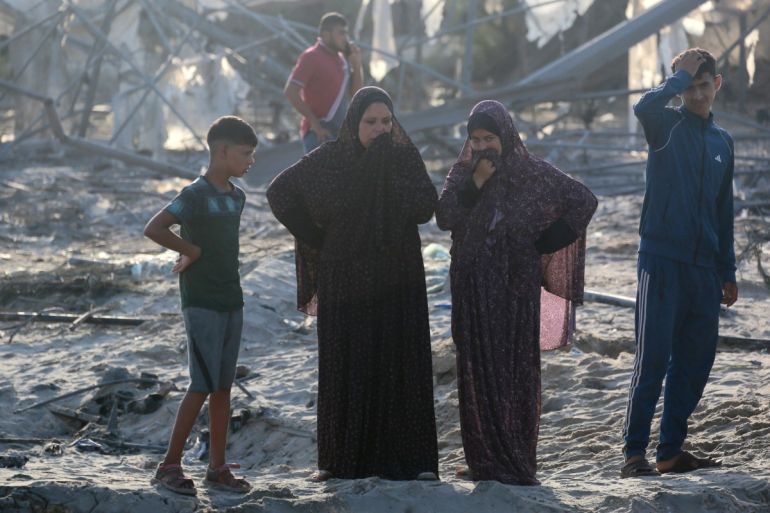
February 26, 2011, marks the eighth anniversary of the imprisonment of Dr. Rafil Dhafir. Dhafir continues to pay the price for feeding the children of Iraq during the US- and UK-sponsored UN sanctions against that country.
According to the United Nations’ own statistics, every month throughout the 1990′s, 6,000 children under the age of five in Iraq were dying from lack of food and access to simple medicines. Three senior UN officials resigned because of what they considered a “genocidal” policy of sanctions against Iraq. Dhafir’s charity, Help the Needy (HTN), openly sent food and medicines to starving civilians in Iraq during the brutal embargo.
Seven government agencies investigated Dhafir and HTN for many years. They intercepted his mail, email, faxes and telephone calls; bugged his office and hotel rooms; went through his trash; and conducted physical surveillance. They were unable to find any evidence of links to terrorism, and no charges of terrorism were ever brought against Dhafir. Yet he and other HTN associates were subjected to high-profile arrests in the early morning of February 26, 2003, just weeks before the US invasion of Iraq. Simultaneous to the arrests, between the hours of 6 AM and 10 AM, law enforcement agents interrogated 150 predominantly Muslim families because they had donated to HTN. On that day, former attorney general John Ashcroft announced that “funders of terrorism have been arrested.”
In light of the demonization of Muslims in the US in the post-9/11 period and the fact that the government was hinting at terrorism connections without bringing any charges, I felt compelled to attend all of Dhafir’s 14-week trial; I did not know Dhafir before attending. I have had a passion for protecting civil liberties since I was 14 years old, when I saw a documentary film about the Allies going into Bergen-Belsen. For 38 years, I have been a voracious reader of firsthand accounts of what happened in Germany in the 1930′s. I always knew that should anything like that happen in my lifetime, I wanted no part of it.
Dhafir was born in Iraq in 1948. He completed medical school before immigrating to the US in 1972 and has been a US citizen for more than 30 years. As an oncologist in an underserved community, Dhafir treated many of his patients for free, paying for expensive chemotherapy out of his own pocket. He is regarded as a pillar of the Central New York Muslim community and a well-known national and international figure. Although charged with white-collar crimes, Dhafir was held without bail for 19 months before trial, which greatly impeded his ability to prepare his defense.
The trial’s proceedings showed Dhafir to be a devout, compassionate man who was highly esteemed by all of his associates; the chilling message his conviction sent to the Muslim community cannot be overstated. Dhafir was convicted on 59 counts of white-collar crime (the government had made a mistake in one of the counts, and the jury was not allowed to deliberate on it) and is currently serving 22 years for a crime he was never convicted of in a court of law: money laundering to help terrorist organizations. Dhafir is imprisoned in a special Communications Management Unit (CMU) that houses almost exclusively Muslim and/or Arab prisoners.
Before attending Dhafir’s trial, I spent my entire life secure in the knowledge that my civil rights would always be respected. I no longer believe this to be true.
Iraq Under Sanctions and Dhafir’s Humanitarian Response
Saddam Hussein invaded Kuwait on August 1, 1990; US sanctions against Iraq were put in place the next day. On January 17, 1991, the first bombs of the Gulf War were dropped on Baghdad.
Before the war, the people of Iraq had a standard of living in some ways comparable to that of many Western countries. Although it was a brutal dictatorship, the government provided universal health care and education, including college, for all of its citizens. There was very little illiteracy, and the education and health systems were the best in the region. The sanctions changed all that.
Several government witnesses of Iraqi descent broke down on the stand when they began to talk about the effects of the sanctions on their families. Each time this happened, the prosecution immediately interrupted the testimony. In fact, throughout Dhafir’s trial, the government did its utmost to prevent any discussion of the conditions in Iraq under the sanctions. When the defense attempted to question Susan Hutner of the Office of Foreign Asset Control (OFAC) about the Oil for Food program, the court ruled the line of questioning irrelevant. Government employees, including Hutner, testified to having no knowledge of the effects of the sanctions. As the government attorney addressing the situation in Iraq, Hutner helped draft the initial legal documentation to implement the sanctions and then worked on them for 12 years.
During the Gulf War, more bombs were dropped on Iraq in a six-week period than were dropped in the whole of World War II; the country was devastated. In total, these bombs were at least six times more powerful than two atomic bombs. Many types of bombs were used, including ones containing depleted uranium (DU), the waste matter from nuclear plants; hundreds of tons of DU ammunition now lie scattered throughout Iraq. The DU dust has entered the food chain through the soil and the water. As a result, many diseases formerly unseen in Iraq are now prevalent there. Many pregnant women delivered babies as early as six months, and many babies were born with terrible deformities. Cancer rates increased dramatically. These effects have been compounded by the current war.
All major bridges and communication systems were bombed, making communications both inside and outside the country extremely difficult. The water purification system was bombed and the UN never allowed it to be repaired; as a result, 15 years’ worth of raw sewage piled up in the streets and resulted in widespread disease and death, particularly among the young and the very old. Hospitals and schools were not spared.
As a result of the bombings and sanctions, the health and education systems in Iraq, once the best in the region, became the worst.
The United States led the effort to place restrictive sanctions on Iraq. When Madeleine Albright, then-US ambassador to the United Nations, was asked in a CBS interview if the deaths of half a million children were a price worth paying to punish Hussein, she infamously replied, “I think this is a very hard choice, but the price – we think the price is worth it.” When adults and children over the age of five are included, the number of civilians killed as a direct result of the sanctions rises to between 1.5 and 2 million.
It was in direct response to this humanitarian catastrophe that Dhafir founded HTN. For 13 years, he worked tirelessly to help publicize the plight of the Iraqi people and to raise funds to help them. According to the government, Dhafir donated $1.4 million of his own money over the years. As an oncologist, he was also concerned about Iraq’s skyrocketing cancer rates and the role of DU.
Government Duplicity
From the outset of Dhafir’s case, the government was duplicitous. Using unfair tactics and innuendo and aided by a compliant media, the government transformed Dhafir’s community image from that of a compassionate humanitarian into one of a crook and supporter of terrorism.
Just before the start of Dhafir’s trial in October 2004, Michael Powell of The Washington Post wrote: “There is a shadow-boxing quality to the terror allegations lodged against Dhafir. In August [2004], Gov. George E. Pataki (R) described Dhafir’s as a ‘money laundering case to help terrorist organizations … conduct horrible acts.’ Prosecutors hinted at national security reasons for holding Dhafir without bail. But no evidence was offered to support the allegations.”
Pataki’s description of Dhafir was perfectly timed to reach potential jurors. While national and state figures tarred Dhafir with the terrorist brush, then-district attorney Glenn Suddaby (now a federal judge) and local prosecutors maintained that Dhafir was nothing more than a common thief. The prosecution even successfully petitioned the presiding judge to exclude any mention of terrorism from the proceedings. This meant that throughout the trial, the prosecution could hint at more serious (terrorism) charges, but the defense was prohibited from addressing these inflammatory innuendos head-on. The government’s “shadow-boxing” gave a surreal feel to the proceedings; what was happening in the courtroom was not what the trial was really about.
The first indictment against Dhafir contained 14 charges related only to the Iraq sanctions. Later, when Dhafir refused to accept a plea agreement, the government piled on more charges, and he eventually faced a 60-count indictment that included violating federal regulations related to economic sanctions imposed against Iraq, money laundering, mail and wire fraud, tax evasion, visa fraud – all related to running the charity – and Medicare fraud.
Medicare charges usually involve fictitious patients and made-up illnesses; none of these factors were present in Dhafir’s case. The government never contested that patients received care and chemotherapy. Its argument for all 25 counts was that, because Dhafir was sometimes not present in his office when patients were treated, the Medicare claim forms were filled out incorrectly, and he was thus not due any reimbursement for treatment or for the expensive chemotherapy his office had administered.
Mrs. Dhafir’s cross-examination by the defense also took on a shadow-boxing quality. Mrs. Dhafir was Dr. Dhafir’s bookkeeper, and took a plea deal by pleading guilty to one count of lying to a government agent; she had told a government agent that her husband had been present in his medical office on a day that he had not been. On the stand, she answered questions about the intricacies of Medicare reimbursement and identified office staff signatures on Medicare reimbursement forms. While she testified, a large screen opposite the jury featured an excerpt from the Medicare handbook, which said that in the event of a billing error, “a refund would be requested.”
This was the backdrop as Mrs. Dhafir described the mayhem at her house on the day of her husband’s arrest. (She was not arrested on that day and did not face any charge until later.) Her husband left for work at his usual time, 6:30 AM. After he left, the doorbell rang. Before Mrs. Dhafir could answer the door, five FBI agents broke it down. Finding her on the other side, they held guns to her head. Helicopters and local media hovered over the house as 85 government agents visited the house throughout the day. Mrs. Dhafir spent the day in her nightclothes and was not allowed to shut the door when she went to the bathroom.
Jennifer Van Bergen, author of “The Twilight of Democracy,” wrote a two-part article on Dhafir’s case entitled “New American Law: The Case of Dr. Dhafir” and “New American Law: Legal Strategies and Precedents in the Dhafir Case.” In these and other writings, Van Bergen warns about the danger of civil liberties being undermined when the government uses parallel legal tracks that were never intended to be mixed. She notes that, as happened in Dhafir’s case, conspiracy laws and money-laundering laws used “creatively” with the PATRIOT Act and the International Emergency Economic Powers Act (IEEPA) can be used to construct a vastly distorted picture.
“Collateral Damage: How the War on Terror Hurts Charities, Foundations, and the People They Serve,” a July 2008 report by OMB Watch, a nonprofit watchdog organization that monitors the White House Office of Management and Budget (OMB), describes the difficult terrain that Muslim charities must navigate:
“Since 2001, the Department of the Treasury’s Office of Foreign Assets Control (OFAC) and the Justice Department have incrementally expanded their interpretation of the International Emergency Economic Powers Act (IEEPA) and what is considered prohibited ‘material support’ of, or ‘otherwise associat[ing] with,’ designated terrorist organizations or individuals. Originally understood to be direct transfers of funds or goods, ‘material support’ is now interpreted to include legitimate charitable aid that may ‘otherwise cultivate support’ for a designated organization. Furthermore, ‘other-wise associated with’ can include indirect or past relationships, even when there is no claim that the relationship included aiding terrorists or participating in terrorist plots or conspiracies.”
Inconsistencies in the government’s position were a startling feature of Dhafir’s case from its inception and suggested two possibilities: either one hand of the government didn’t know what the other was doing, or the government was deliberately aiming to deceive. The fact that the district attorney and local prosecutors claimed Dhafir’s conviction as a successful prosecution in the “war on terror” suggests that the government’s duplicity was a strategy from the outset. Mrs. Dhafir is now listed on the government’s list of successful terrorism prosecutions along with her husband and other HTN associates, including Dhafir’s personal accountant, an older man from a small town in upstate New York who was also subject to a high-profile arrest.
According to the OMB Watch report, “The incremental expansion of what is prohibited activity, coupled with the vague standards defining alleged terrorist associations, makes it increasingly difficult for charities and foundations to predict what constitutes illegal behavior. Consequently, the US nonprofit community operates in fear of what may spark OFAC to use its power to shut them down.”
Dr. Dhafir’s case sets a legal precedent and means that others who provide humanitarian and medical assistance to those in need could end up like him: put away for the rest of their lives.
Post Disclaimer | Support Us
Support Us
The sailanmuslim.com web site entirely supported by individual donors and well wishers. If you regularly visit this site and wish to show your appreciation, or if you wish to see further development of sailanmuslim.com, please donate us
IMPORTANT : All content hosted on sailanmuslim.com is solely for non-commercial purposes and with the permission of original copyright holders. Any other use of the hosted content, such as for financial gain, requires express approval from the copyright owners.
 Sri lanka Muslims Web Portal Sri Lanka Muslims News Center
Sri lanka Muslims Web Portal Sri Lanka Muslims News Center



